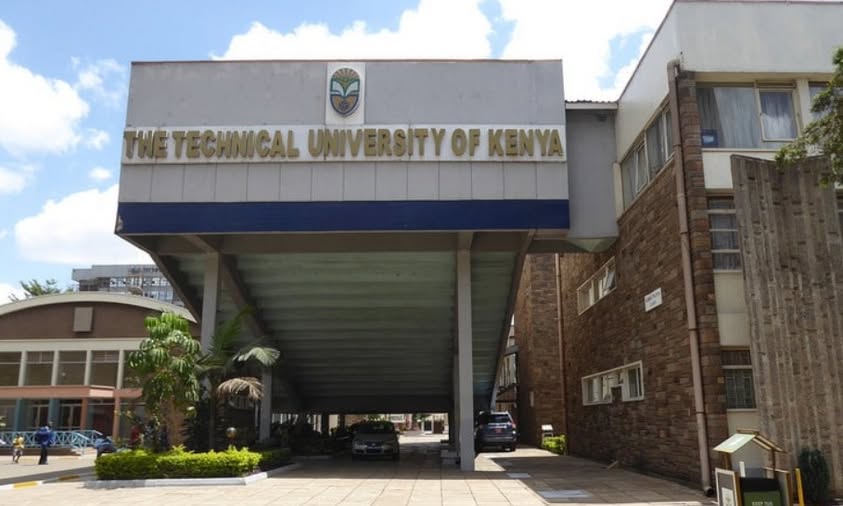The future of higher education in Kenya is at risk due to the severe rot in the country’s universities and technical institutes.
Kenya’s higher education system is being devastated by a silent catastrophe. The alarming fact beneath the magnificent university gates and shiny graduation robes is the widespread mismanagement of public universities and technical colleges, which is currently endangering the caliber, trustworthiness, and viability of higher education in the nation.
Concerns regarding the administration of Kenya’s higher education institutions have been increasing steadily over the last ten years. Despite the fact that education is still a potent instrument for national progress, poor management has undermined public confidence and made students, parents, and instructors feel discouraged and helpless.
Billions Missing and Financial Rot
Financial mismanagement is at the heart of the issue. The Office of the Auditor General’s reports have consistently identified several organizations for unaccounted expenditures, missing receipts, and dubious procurement agreements. In audits involving public universities and Technical and Vocational Education and Training colleges (TVETs) in 2024 alone, more than Kshs 4.2 billion could not be located.
One noteworthy instance is that a top public institution in Nairobi spent more than Ksh 700 million on unfinished projects. At the same time, the lecturers in the same school were not paid for months. Students were forced to learn in run-down classrooms with broken seats and malfunctioning projectors.
Peter Mugendi, a student leader at Egerton University, said, “This is daylight robbery. We pay fees expecting quality education, but what we get is neglect and excuses.”
Political Meddling and a Crisis of Leadership
There is a lot of debate around leadership at several universities and technical institutions. Political ties rather than academic qualifications or experience are frequently the deciding factor in appointments to high-level posts, such as Vice-Chancellors, Registrars, and Deans. This has resulted in the selection of unqualified leaders, which has exacerbated the deterioration of institutional governance.
According to a 2025 research conducted by the Commission for University Education (CUE), more than 35% of senior university administrators lacked the necessary skills or experience for their positions. This leads to bad strategic planning, misallocation of resources, and constant internal disagreements.
“We’re seeing the demise of professional leadership. The majority of managers are more concerned with pleasing appointing officials than with producing academic excellence,” stated Dr. Janet Wekesa, a university professor and specialist in education policy.
Disregard for Learners and the Learning Environment
Student welfare is no longer a top concern at many schools. The food in cafeterias is of poor quality, hostel amenities are congested, and there are few options for getting clean water and Wi-Fi. Particularly in technical schools, students are not adequately prepared for the workforce due to a lack of current training facilities.
Ann Mwikali, a student at a TVET college in Machakos, asked, “Our workshop equipment is decades old, and some of it is totally broken. How can we be expected to learn technical skills this way?”
The Kenya University Students Organization (KUSO) has also expressed concern about the increasing number of mental health problems among students, which are frequently disregarded by university administrations. According to KUSO President Brian Ochieng, “When students speak out, they are threatened with suspension or ignored altogether.”
Recruitment, promotion, and tribalism are all unfair.
Academic and non-academic personnel are frequently hired and promoted corruptly. There have been cases reported by several whistleblowers of jobs being awarded to family members and friends, bypassing qualified candidates. Many appointments, particularly in schools located in rural regions, are heavily influenced by tribalism.
According to a 2022 study by the Ethics and Anti-Corruption Commission (EACC), nepotism was the main type of corruption in university hiring, followed by bribery. This has demoralized the workforce and fostered a culture of mediocrity.
Research and Innovation at a Standstill
In the past, Kenyan institutions produced the majority of research in East Africa. Today, even the most fundamental research initiatives are difficult for many individuals to support. While post-graduate students bemoan slow approvals and unsupportive supervisors, grants are either misused or poorly managed.
“Kenya is missing out on solving real problems through research because institutions are busy fighting over money instead of investing in innovation,” bemoaned Dr. Alfred Njoroge, a senior researcher at a Nairobi public university.
Academic dishonesty and inconsistencies in the exam
Instances of plagiarism, grade-related bribery, and stolen exams have grown more prevalent. A nationwide probe in 2024 revealed a network of dishonest instructors who were selling test responses to students through WhatsApp groups. However, only a few organizations have taken definitive action.
With remarkable papers but little understanding, graduates are leaving universities, which is adding to the growing problem of graduate unemployment and employer distrust.
The Human Cost: Lost Dreams and National Repercussions
The consequences of mismanagement are highly individual. Students postpone graduation because of missing grades. Parents make sacrifices to pay tuition costs, but their children attend schools with subpar facilities. Unfair promotions and unpaid wages cause a decline in employee morale.
Experts in education caution that further neglect may harm Kenya’s standing in the world.
Prof. Ruth Achieng, a visiting lecturer from South Africa, cautioned, “The global academic community is watching. If we don’t clean up our institutions, our degrees risk losing credibility.”
Calls for Reform and Responsibility
The future of higher education is currently the subject of a national discussion that stakeholders are demanding. They proposed establishing independent boards for financial oversight in all universities, reviewing all university leadership appointments to ensure meritocracy, enforcing severe punishments for corruption and academic misconduct, investing more in student well-being and educational resources, and protecting whistleblowers while fostering operational transparency.
Now Is the Time to Act
Technical colleges and universities in Kenya are intended to be hubs of knowledge, innovation, and excellence. However, poor management is gradually turning them into shadows of what they might be. The nation runs the risk of producing cohorts of underqualified graduates and squandering billions of taxpayer dollars if immediate and radical changes are not implemented.





Be First to Comment